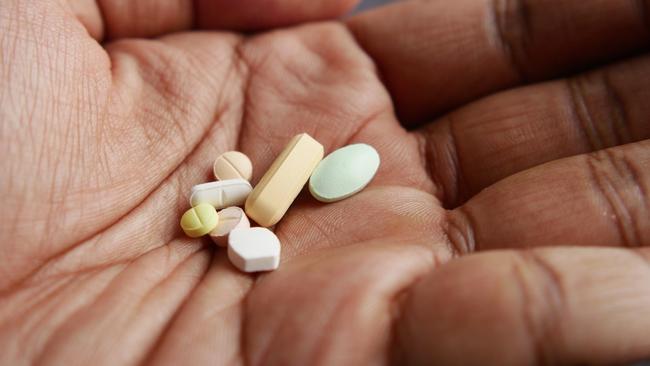The grim reason women are being overmedicated
When will we stamp out gender bias in healthcare?

Lifestyle
Don't miss out on the headlines from Lifestyle. Followed categories will be added to My News.
Women are already often underdiagnosed, misdiagnosed, and now researchers believe they may also be overmedicated.
Gender bias is still alive and well in the healthcare industry.
The stories of women having to consistently advocate for themselves, being told their endometriosis is just IBS, their ADHD is anxiety, and their pain is in their head are never-ending.
While the Heart Foundation says an Australian woman dies of coronary heart disease almost every hour, women are ‘much less likely to undergo treatment for heart attack or angina (chest pain) in hospital compared to men’. A 2024 report found that heart disease goes “underdiagnosed, undertreated and underrepresented” in women as they are often excluded from clinical trials and regularly have their symptoms dismissed by doctors.

Much of medical research has historically been focused on males, resulting in a lack of understanding of women’s health. One of the more recent instances to come into the public consciousness has been the realisation that ADHD and autism present significantly differently in men and women, resulting in generations of women going underdiagnosed and unsupported.
Now it seems that when they do receive treatment for their health issues, women may not be prescribed a suitable dosage of medication as a result of research focusing mainly on males.
According to researchers from the University of Chicago and the University of California, Berkeley, the high rate of adverse drug reactions experienced by women could be a result of dosages being calculated based on male-dominated studies.

Why have women been excluded from drug trials?
In the past, women haven’t been a part of many drug trials due to a belief that hormonal changes could impact outcomes.
Pregnant women have also been excluded for fear of endangering fetuses.
While many trials are now required to include men and women, a great deal still fail to analyse the gendered differences in drug reactions.

Women may metabolise some medicines more slowly
After analysing data from thousands of medical journal articles, the research team found evidence of differences in how men and women broke down 86 different drugs.
Women metabolised the majority of these slower than men, leaving them with higher concentrations of the medications in their blood. More than 90 per cent of these women also reportedly experienced more severe side effects, including headaches, nausea, depression, seizures, agitation, hallucinations and heart issues.

“The reasons for these big differences is not fully understood, but this is a really striking result and a wake-up call,” co-author Brian Prendergast said.
The team found that women experienced adverse drug reactions close to twice as often as men.
Irving Zucker led the study. He said, “when it comes to prescribing drugs, a one-size-fits-all approach, based on male-dominated clinical trials, is not working, and women are getting the short end of the stick”.
More Coverage
Originally published as The grim reason women are being overmedicated





